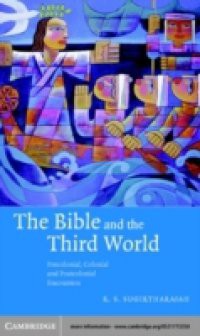This innovative study moves briskly but comprehensively through three phases of the Third World's encounter with the Bible - precolonial, colonial, and postcolonial. It recounts the remarkable story of how an inaccessible and marginal book in the ancient churches of India, China and North Africa became an important tool in the hands of both coloniser and colonised; how it has been reclaimed in the postcolonial world; and how it is now being reread by various indigenes, Native Americans, dalits and women. Drawing on substantial exegetical examples, Sugirtharajah examines reading practices ranging from the vernacular to liberation and the newly-emerging postcolonial criticism. His study emphasises the often overlooked biblical reflections of people such as Equiano and Ramabai as well as better-known contemporaries like Gutierrez and Tamez. Partly historical and partly hermeneutical, the volume will serve as an invaluable introduction to the Bible in the Third World for students and interested general readers.

